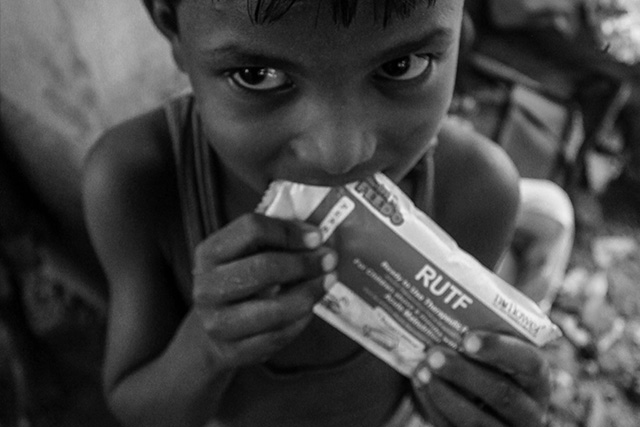Community-based Management of Acute Malnutrition (CMAM) is an integrated and comprehensive approach to treating and preventing malnutrition that is implemented at the community level. CMAM combines the use of specialized nutritious foods, such as ready-to-use therapeutic foods (RUTF), with other forms of care and support to treat and prevent malnutrition.
The benefits of CMAM include
Early identification and treatment: CMAM allows for early identification and treatment of malnutrition in the community, which can prevent the condition from becoming severe and reduce the risk of morbidity and mortality.
Improved access to care: By providing care in the community, CMAM can improve access to treatment for children who may not have been able to receive it otherwise.
Increased coverage: CMAM can increase coverage of malnutrition treatment, as it allows for more children to be reached in remote areas or in situations where access to healthcare is limited.
Integration with other services: CMAM can be integrated with other services such as health education, maternal and child health care, and water and sanitation, which can help to prevent malnutrition and improve overall health outcomes.
Cost-effective: CMAM is considered as a cost-effective approach to treating malnutrition, as it does not require long-term follow-up and it can be implemented in a community setting.
Community ownership: CMAM promotes community ownership, as it involves community members in the identification, treatment, and follow-up of malnourished children.
It is a flexible approach: CMAM can be adapted to suit the needs of a specific community and can be scaled up or down depending on the level of malnutrition.
It is sustainable: By addressing underlying causes of malnutrition and providing ongoing support, CMAM can help to prevent future episodes of malnutrition and create sustainable change.
CMAM is widely recognized as a “supertool” against malnutrition because it is an evidence-based, comprehensive, and integrated approach that can effectively treat and prevent malnutrition in children.
CMAM can change lives by saving lives, improving health, increasing access to care, reducing poverty, and promoting sustainable change in communities affected by malnutrition.
Screening: CMAM begins with community-based screening, which is used to identify children who are at risk of malnutrition or who are already malnourished.
Treatment: Children who are identified as malnourished are provided with specialized nutritious foods, such as RUTF, as well as other forms of care, such as antibiotics and micronutrient supplements, to treat their malnutrition.
Follow-up and monitoring: Children who are receiving treatment for malnutrition are regularly monitored to ensure that they are gaining weight and recovering from the condition.
Health education: Caregivers and families are provided with health education on appropriate feeding practices, hygiene, and disease prevention to prevent further episodes of malnutrition.
Integration with other services: CMAM can be integrated with other services, such as maternal and child health care, water and sanitation, and primary healthcare to improve overall health outcomes.
Community engagement: CMAM promotes community engagement by involving community members in the identification, treatment, and follow-up of malnourished children.
Advocacy: CMAM also includes advocacy to raise awareness of malnutrition and to mobilize resources and support to address the issue.
CMAM is widely recognized as an effective approach to treating and preventing malnutrition, particularly in low- and middle-income countries. It is supported by several international organizations such as UNICEF, WHO, and WFP.
Community-based Management of Acute Malnutrition (CMAM) can change lives in several ways. CMAM helps save lives, improve health, increase access to care, reduce poverty, improve cognitive and developmental outcomes, promote community ownership, address underlying causes, and reduce costs

